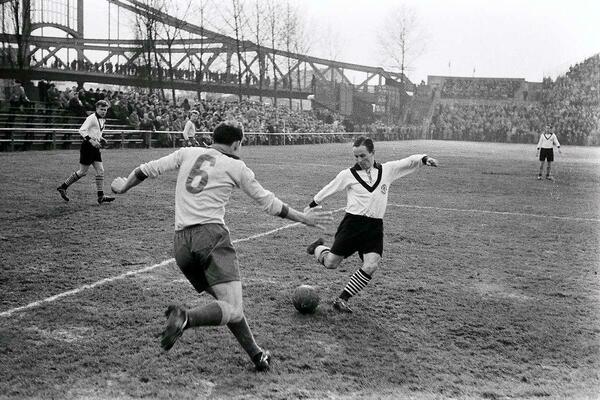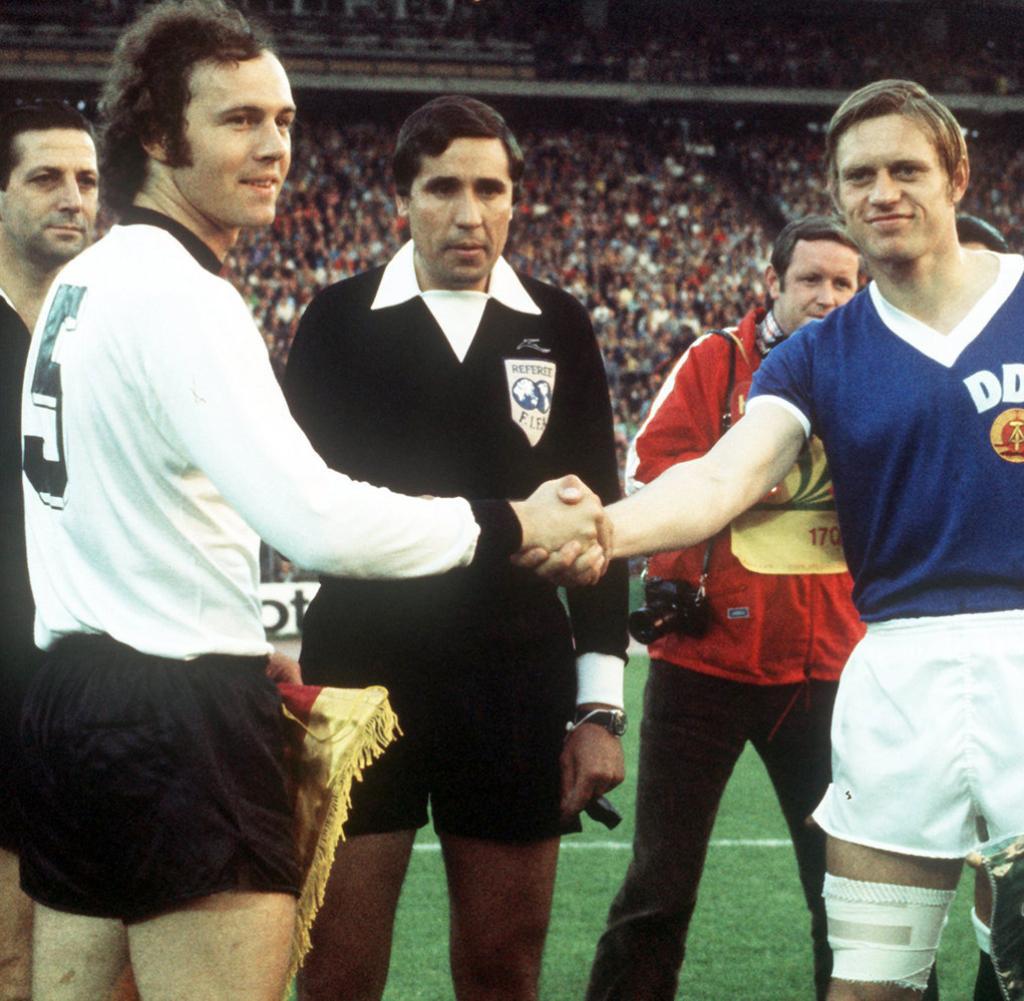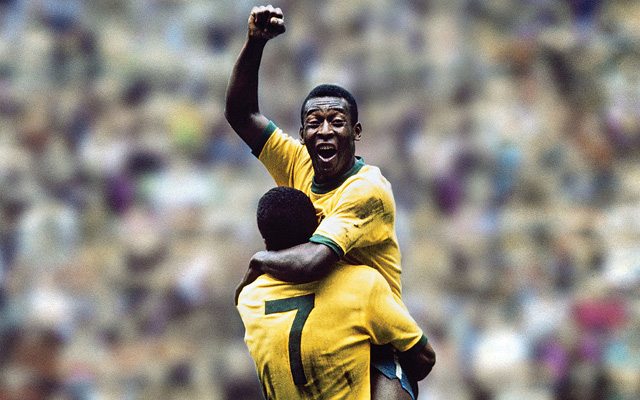Last update November 9, 2019 by Javier Argudo
Brothers Fritz Y Max Linder They decided to accompany his father and make a little excursion on the steamer Hertha, a small ship, Teutons plying rivers, German glittered before the little sun with two distinctive colors: blue and white. The young brothers should be both color pledged that ship as its name, a derivation of Nerthus, goddess of fertility in Norse mythology, because when they decided to create a football team in the year 1892, the Berlin Football Club Hertha 1892 He wore the colors gave life to that ship and today still do unmistakable German club. Because Hertha has lived much (not in vain is known as Die alte Dame Cathedral: the old lady). He has seen Imperios, republics, Wars and Muros, but the blue and white remains the color of Berlin's football lovers.
The Hertha It was one of the teams who founded the German Football in the year 1900, becoming since the early twentieth century a regular at various competitions in Berlin and Brandenburg. Gradually he grew into the biggest club in the German capital, but the final breakthrough came when in 1923 absorbed the Berliner Sport Club, resulting in the Hertha BSC, official name continues today. We can say without doubt that because of the absorption came the most prolific years of the Berlin company. Two championships in Germany 1930 and in 1931, as well as eight leagues BerlínBrandenburgo between 1925 Y 1933, They are proof of it. But nevertheless, dark eagle soon pounce on Europe began they bowed their claws on Germany itself, Hertha being one of the victims.
Hertha and Nazism
It has been speculated the team following the German dictator whose name deserves to be remembered. They say the gossip that is the Schalke 04 the club that has the dubious honor of being the team fetish fuhrer, but the truth is that during the early days of the Third Reich, the Hertha Berlin It was used by the Nazis as a propaganda element. In fact, the policy that had enabled the gains of the previous decade was expelled, accessing the presidency Hans Pfeifer, leading member of the Nazi Party. Under the new presidency, Hertha was used by the regime, He is sent to play the French Sarre, Danzig and the Polish Slovakia, three regions soon fall prey to Nazi tyranny.
In this line, from the club's own letters they were sent to other equipment such as West Ham, the Barcelona one he Ajax in which he repeated over and over again that everything came abroad about Nazi abuses were nothing more than fabrications created by Judaism and international socialism. But the truth is that while calling to normal, installed anti-Semitism in Germany was to affect the Hertha, It is an example of this the fate of the team doctor, Hermann Horwitz, undeniably a Jew named, who he was deported to Auschwitz with tragic outcome.
However, Over time the Nazi Party laid eyes on other teams like Schalke 04, Stuttgart, o el TSV 1986 Munich, thus beginning the decline of Hertha. In fact, when the Red Army began to penetrate in Berlin and had to be suspended Gauliga (name that was called to the first division of Nazi Germany), Hertha occupied the penultimate position; hence there are those who say that Hertha was saved from relegation by the Soviet army. their stadium, however, It could not be saved. The 25 of April, few days before the hammer and sickle over the Reichstag be flown, the Soviets conquered the district who had served as home to Hertha. Gesundrunnen, the stadium that had witnessed the conquest of championships and even the visit of illustrious witnesses as Penarol, He sank amid the ruins and ashes caused by bombing; and with him, all past club.
Thus he began one of the most tragic periods of German history, the division. Allied authorities suspended all preexisting German associations, allowing only the operation of those sports clubs that will represent districts. In this way, Hertha had to be renamed SG Gesundbrunnen, unable to retrieve the name of the Norse goddess until 1949. In a Berlin where East teams began competing in East Germany League, Hertha started playing in the Oberliga Berlin, where competitiveness nonexistant. Nonetheless, almost all football fans in Berlin, regardless of the capital area in which to live, Hertha fans were, and the time when control of the border was not exhaustive, was normal pilgrimage of fans from East to Gesundbrunnen, that newly reconstructed, It was near the artificial line between two countries that had until recently been one before.
THE BERLIN WALL
But then came the fateful date 13 August 1961. The Berlin Wall He rose and overnight the town was divided into two areas impassable. Thousands of fans, and even players Hertha, They were on the other side of the Wall, It is making it impossible to cross to enjoy the goals of his team. A) Yes, during match days, Many were supporters of East Berlin who approached the wall to hear the screaming coming from Plumpe, name that is popularly called the stadium Hertha. But nevertheless, authorities German Democratic Republic they soon put an end to that situation, not only prohibiting the presence of people in the vicinity, but even going to consider love Hertha, and representative of capitalist Germany team, as a betrayal of the new socialist state.
The fans had at least the consolation of seeing the show heavy-handed on the walls of the prison that the Wall meant for them, but the situation soon changed. In the season 1963-1964 He started the Bundesliga and the Hertha He moved to Olympiastadion Berlin. Olympic Stadium in the German capital had an important symbolic. It was there Jesse Owens He showed the Nazi regime during Olympics 1936 their racist diatribes had no reason to be, but that was not the home of Hertha. The new stadium was away from his neighborhood, and what was more important, Hertha no longer plowed the waters of the German league with all hands on board, as half of their fans should follow in hiding; refusing to encourage the Dynamo Berlin, the team feared at the same time hated Stasi, o al TSC Berlin, what in 1966 It would end up becoming the Union Berlin.
Path Hertha It was irregular during the years that the Wall was standing. He went down to second division 1965 by issues related to corruption (being surrounded by East Germany was forced to pay wages above the salary cap in order to attract players); shortly after he returned to the Bundesliga doing good campaigns and getting to play UEFA Cup, where he was eliminated in the semifinals by the Red Star Belgrade; and in 1980 She dropped back to second, category in which wandered for almost all the decade. But at dawn 9 al 10 November the Wall was torn down, thus ending years of separation and suffering. The weekend following the Hertha He played against Wattenscheid before 59.000 people. Thousands of fans were residents of East Berlin Hertha holstered their jerseys since 1961 They had been keeping as relics in their drawers. That day, Die Alte Dame Cathedral again gathered a crowd that had been separated by the Cold War. That day, the Wall fell for the football world.




